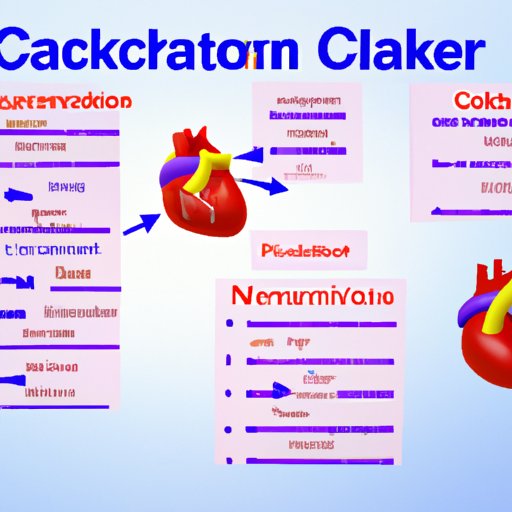Introduction
Calcium channel blockers (CCBs) are a type of medication that is commonly prescribed to treat high blood pressure and other cardiac conditions. CCBs work by blocking calcium from entering the cells of the heart and blood vessels, which helps to reduce the force of contraction and relaxes the walls of the blood vessels. This can help to lower blood pressure and reduce the workload on the heart.

Benefits and Side Effects of Taking a Calcium Channel Blocker
Taking a calcium channel blocker can provide a number of benefits, including reducing the risk of stroke, heart attack and other cardiovascular events. It can also help to reduce chest pain and improve overall quality of life. However, there are some potential side effects associated with taking a CCB, such as dizziness, headache, nausea and constipation. Additionally, long-term use of CCBs can increase the risk of developing kidney problems.
Investigating the Mechanism of Action for Calcium Channel Blockers
To understand how CCBs work, it is important to look at how they interact with cells. CCBs bind to specific proteins on the surface of cells, known as calcium channels. These channels are responsible for allowing calcium to enter the cell, which causes the cell to contract. By blocking these channels, CCBs prevent calcium from entering the cell and reduce the force of contraction. This has the effect of relaxing the walls of the blood vessels and lowering blood pressure. Additionally, CCBs can reduce the rate of the heart beat and help to reduce the workload on the heart.

Comprehensive Overview of Calcium Channel Blockers
There are several different types of calcium channel blockers available, including dihydropyridines, phenylalkylamines and benzothiazepines. The type of CCB prescribed will depend on the individual’s medical condition and other medications they may be taking. Generally, doctors will start with the lowest dose possible and adjust it over time if necessary. It is important to take CCBs exactly as prescribed and not to stop taking them without consulting a doctor first.
Role of Calcium Channel Blockers in Cardiac Conditions
In addition to treating high blood pressure, calcium channel blockers can be used to treat other cardiac conditions, such as angina and arrhythmia. By blocking calcium from entering the cells of the heart, CCBs can reduce the force of contraction and help to reduce the workload on the heart. Additionally, they can help to reduce chest pain and improve overall quality of life.

Analysis of Potential Interactions between Calcium Channel Blockers and Other Medications
It is important to be aware of any potential interactions between calcium channel blockers and other medications. Certain drugs, such as beta blockers, ACE inhibitors and diuretics, can have an additive effect when taken with a CCB. Additionally, certain supplements, such as St. John’s wort and ginseng, can interact with CCBs and should be avoided. Your doctor should be able to advise you on any potential interactions between your medications.
Conclusion
Calcium channel blockers are a type of medication commonly used to treat high blood pressure and other cardiac conditions. They work by blocking calcium from entering the cells of the heart and blood vessels, which helps to reduce the force of contraction and relaxes the walls of the blood vessels. While taking a CCB can provide a number of benefits, there are potential side effects and interactions to be aware of. It is important to discuss any concerns you may have with your doctor before taking a calcium channel blocker.
(Note: Is this article not meeting your expectations? Do you have knowledge or insights to share? Unlock new opportunities and expand your reach by joining our authors team. Click Registration to join us and share your expertise with our readers.)
